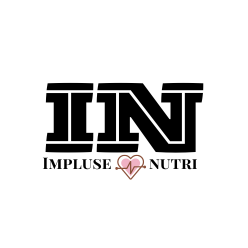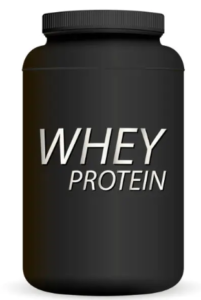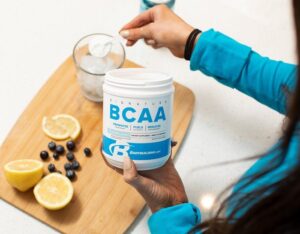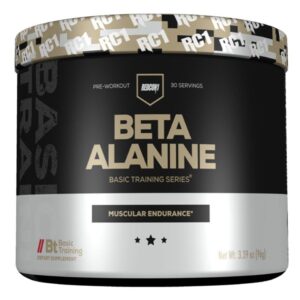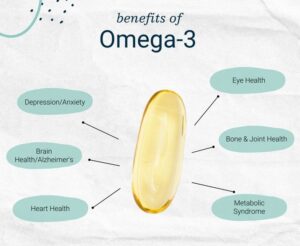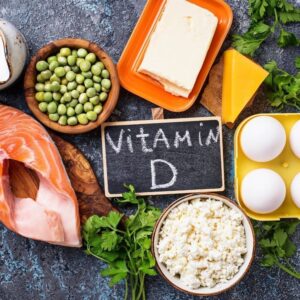Most effective supplements If you’re a beginner looking to start building muscle, it’s essential to focus on a well-rounded approach that includes proper nutrition, strength training, and consistency. While supplements can be beneficial, they should complement, not replace, a balanced diet and a good training program. Here are some basic supplements that can be helpful for beginners:
1. Protein Powder:
In the worlds of bodybuilding and fitness, protein powder has become incredibly popular as an essential ingredient for growing muscle.It is a concentrated protein supplement made from a variety of sources, including hemp, soy, whey, and casein.Paste your own text here and click the ‘Check Grammar’ button. Click the colored phrases for details on potential errors. Or use this text too see an few of the problems that Smallseotools can detecd. What do you think of grammar checkers? Please not that they are not perfect. One may ascribe the significance of protein powder in muscle growth to several aspects, such as its capacity to facilitate muscle synthesis and repair, as well as its ease of use.
The fact that protein powder offers a quick and easy way to get high-quality protein is one of the main reasons it’s regarded as necessary for building muscle. Protein powder is a quick and easy substitute in a world where hectic schedules and demanding lives can make it difficult to obtain enough protein from whole food sources alone. This is especially advantageous for those who participate in physically demanding activities, such weightlifting and high-intensity training, as these activities increase the need for protein to promote the growth and recuperation of muscles.
Amino acids are the building blocks of muscles and make up protein. To rebuild and repair muscle tissue, the body need an adequate amount of amino acids, particularly after intense activity that damages the muscles. Because of its high protein content, protein powder provides a concentrated dosage of critical amino acids that aid in muscle building and recuperation. Branching-chain amino acids (BCAAs) like leucine, which are essential for promoting muscle protein synthesis, are abundant in whey protein in particular.
Furthermore, protein powder is a great option for post-workout nourishment due to its quick rate of absorption. The body is in a higher state of protein synthesis after an exercise, and taking protein at this window of opportunity can improve muscle development and recovery. Protein powder is easily absorbed and digested, giving the muscles the nutrition they need to begin the healing process.
For individuals trying to reach certain consumption targets for protein, protein powder also provides a workable answer. Protein needs are frequently higher for bodybuilders and athletes in order to support their training plans and muscle-building goals. Protein powder is a practical alternative for those who want to regulate their protein intake without consuming excessive amounts of food, since it allows them to simply adjust and control their intake.
In conclusion, because of its high protein content, amino acid composition, quick absorption rate, and convenience, protein powder is essential for building muscle. As a supplement, it offers a workable way for those who are trying to meet their protein intake targets, especially those who are physically active. Protein powder may greatly aid in muscle repair, recuperation, and general growth when added to a well-balanced diet, even if it shouldn’t completely replace real food sources.
2. Creatine:
3. Branched-Chain Amino Acids (BCAAs):
BCAAs, including leucine, isoleucine, and valine, can help reduce muscle soreness and aid in muscle recovery. They are particularly useful if you’re working out intensely or in a calorie deficit.
1.Leucine in particular:
is a crucial MPS stimulant that encourages the synthesis of new muscle proteins. MPS stands for muscle protein synthesis. When taken in the proper proportion, BCAAs can improve muscle development in its entirety.
2.Decreased Muscle Soreness:
BCAAs have the potential to hasten recovery by reducing weariness and soreness in the muscles following strenuous exercise. They can also lessen the harm done to muscles during activity, which will enhance the general health of the muscles.
3.Energy Source:
BCAAs may be utilized as an energy source during extended or vigorous activity, which helps to maintain the muscles’ glycogen reserves. This can improve endurance and postpone the onset of weariness.
5.Prevention of Muscle Breakdown:
During times of calorie restriction or vigorous exercise, BCAAs may play a part in preventing the breakdown of muscle. They can preserve muscle mass by functioning as a barrier against catabolism.
6.Enhanced Exercise Performance:
By lowering the sense of weariness, BCAAs may improve exercise performance. This may result in improved endurance and open the door to longer, more intensive training sessions.
It’s important to note that while BCAAs can be beneficial, a well-balanced diet that includes an adequate amount of protein from various sources is generally sufficient for most individuals. BCAA supplements may be particularly useful in certain situations, such as during periods of calorie restriction or for individuals with specific dietary restrictions. As with any supplement, it’s advisable to consult with a healthcare or nutrition professional before incorporating them into your routine.
4. Beta-Alanine:
Beta-alanine can help improve endurance and reduce fatigue during high-intensity workouts. It’s often found in pre-workout supplements.
1.Elevated Carnosine Levels:
During intense activity, muscles create acid, which is buffered by carnosine. This assists people to execute more repetitions or continue exercising for longer periods of time by delaying the onset of muscle tiredness.
2.Increased Endurance:
Beta-alanine supplements may increase endurance during resistance training or high-intensity interval training by buffering the acidic environment in muscles. This enhanced ability to exercise can help make muscle-building exercises more efficient and long-lasting.
3.Increased Training Volume:
People may be able to accomplish more overall work during their training sessions thanks to decreased muscle soreness and increased endurance. Over time, this higher exercise load may encourage larger muscular development.
It’s important to understand that, unlike protein, beta-alanine does not directly contribute to muscle growth, even if it may be advantageous for some forms of exercise. The potential benefits of beta-alanine supplementation for muscle growth can be maximized by combining it with a comprehensive resistance training program, a healthy diet, and an adequate protein consumption. When adding beta-alanine to your program, it’s best to speak with a healthcare or fitness expert, just like you should with any supplement.
5. Fish Oil (Omega-3):
Omega-3 fatty acids are beneficial for overall health and can help reduce inflammation and muscle soreness. They are not directly related to muscle building but can support your overall fitness journey.
1.Decreased Inflammation:
Anti-inflammatory qualities are possessed by omega-3 fatty acids. Fish oil may contribute to the best possible conditions for muscle growth by lowering inflammation. Controlling chronic inflammation may help with muscle growth and recovery, which is an indirect benefit of muscle training.
2.Better Muscle Protein Synthesis (MPS):
The process by which the body creates new proteins and muscle tissues is known as muscle protein synthesis (MPS), and omega-3 fatty acids, particularly EPA, may improve MPS. This may aid in the general development and healing of muscles.
3.Joint Health:
By lowering inflammation and encouraging appropriate lubrication, omega-3 fatty acids enhance joint health. Sufficient joint health is essential for efficient and painless exercise, enabling people to perform resistance training and other muscle-building exercises.
4.Enhanced Insulin Sensitivity:
Omega-3 fatty acids may raise insulin sensitivity, which is advantageous for muscles’ absorption of nutrients. Improved insulin sensitivity may maximize the body’s ability to metabolize nutrients like carbs and amino acids, which are known to promote muscle growth.
5.Prevention of Muscle Loss:
Omega-3 fatty acids may be able to stop muscle loss under some circumstances, such as calorie restriction or age. Maintaining muscle mass is critical for general strength and performance.
6. Multivitamin:
A good quality multivitamin can help fill in any nutritional gaps in your diet, ensuring you get essential vitamins and minerals necessary for muscle growth and overall health.
1.Support for Nutrients:
Sufficient amounts of vitamins and minerals are necessary for good health and the body’s normal operations, which includes the activities involved in muscle growth. Lack of some nutrients may make it more difficult for muscles to develop and heal.
2.Energy Metabolism:
Vitamins that are involved in energy metabolism include niacin and the B-complex vitamins (e.g., B12, B6). For exercises to be as effective as possible and to encourage muscular growth, resistance training must be performed with efficiency.
3.Immune Function:
Excessive exercise, such as weightlifting, can cause the immune system to become momentarily suppressed. Numerous multivitamins contain vitamins like C and D, which support healthy immune system function. A healthy immune system makes it possible for the body to recuperate from exercises and continue training consistently.
4.Vitamin:
E and C are examples of vitamins that function as antioxidants, shielding cells from the oxidative damage that comes with physical activity. This might enhance healing and muscle development indirectly by lowering inflammation and muscle damage.
It is important to remember that multivitamins are not a replacement for a balanced and nutrient-dense diet, even though they can help close dietary gaps in the diet. Many healthy substances found in whole meals, such as fiber and phytonutrients, are absent from multivitamin pills.
In conclusion, multivitamins have a more indirect effect on muscle growth than they do on general health. They boost immune system function, energy metabolism, general health, and antioxidant protection—all of which are beneficial in the larger scheme of a muscle-building regimen. A healthcare provider should always be consulted before beginning a new supplement regimen.
7. Vitamin D:
Vitamin D is crucial for bone health and may have a role in muscle function. Many people have a vitamin D deficiency, so consider getting your levels checked and supplementing if necessary.
1.Bone Health:
Although unrelated to muscle tissue, vitamin D plays a critical role in maintaining healthy bones. Robust skeletal structure furnishes a firm groundwork for musculature, enabling resistance training and mitigating the likelihood of trauma. Gaining muscle is indirectly supported by better bone health.
2.Regulation of Inflammation:
Prolonged inflammation can impair muscle growth and recuperation. Vitamin D has anti-inflammatory properties. Vitamin D may contribute to a more conducive environment for muscle growth by aiding in the regulation of inflammation.
3.Overall Athletic Performance:
Muscle weakness and decreased physical performance have been related to vitamin D insufficiency. Maintaining sufficient amounts of vitamin D may help athletes perform at their best overall, especially while engaging in muscle-building exercises.
Remember that supplements should be used to supplement your diet, not replace it. Focus on a balanced diet rich in lean proteins, carbohydrates, healthy fats, and a variety of fruits and vegetables. It’s also important to consult with a healthcare provider or a registered dietitian before starting any new supplement, especially if you have any underlying health conditions or concerns. Additionally, supplements should be combined with a well-structured strength training program and proper rest and recovery for optimal muscle building results.
